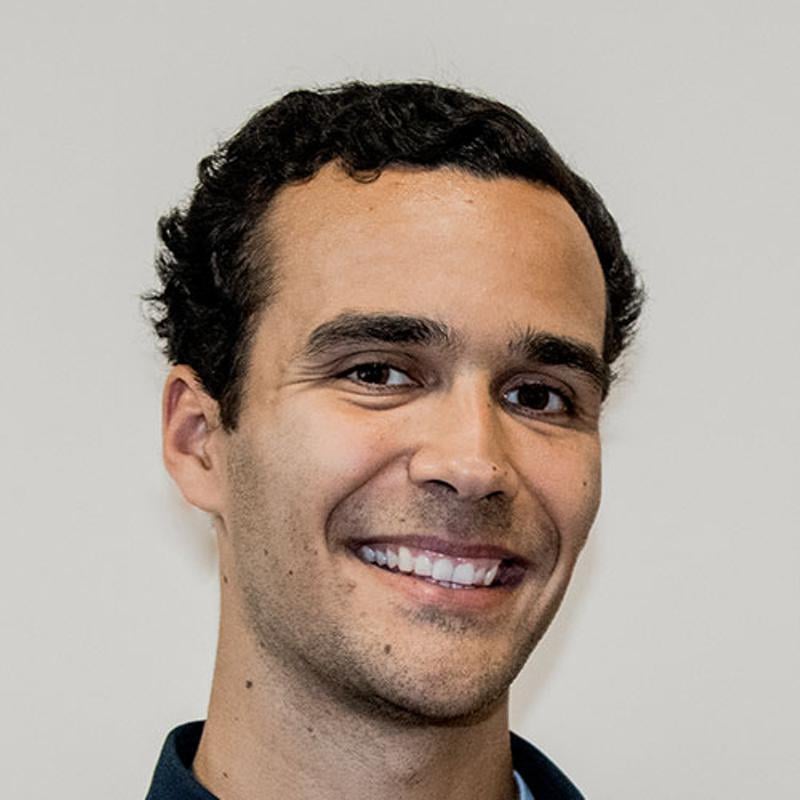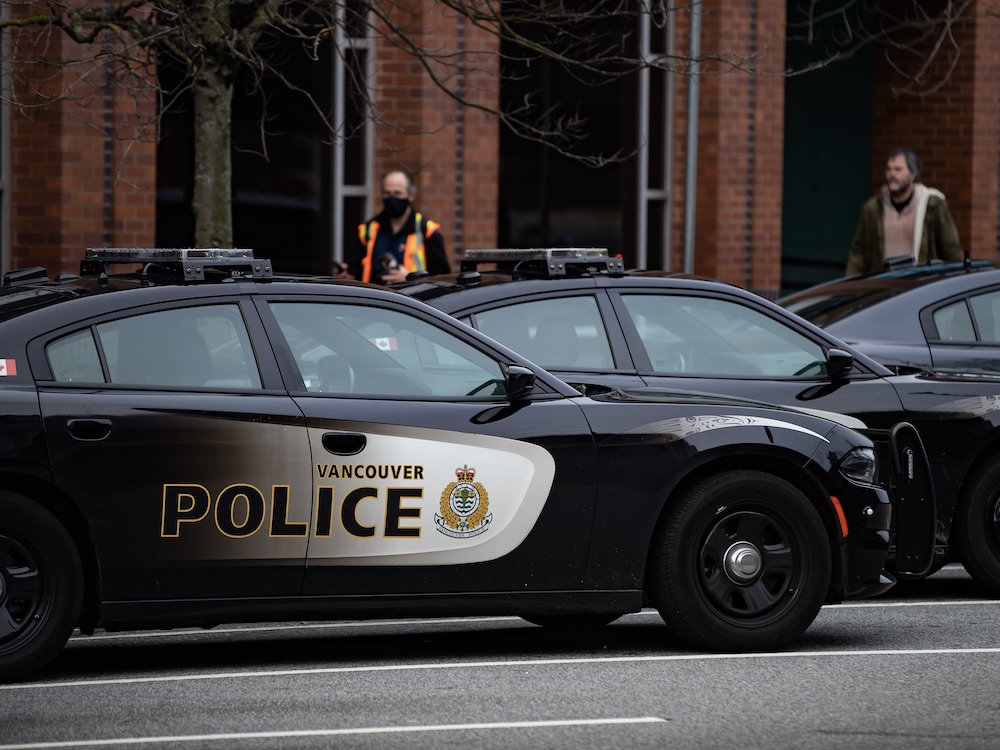The Vancouver Police Union’s unprecedented endorsement of a party that has promised to hire more police officers could give ABC Vancouver a boost in the polls, says a political scientist who studies municipal politics.
But Stewart Prest says the move sets a dangerous precedent for the civic democratic process, and examples from the United States show that it’s not a good idea.
“Police have a huge amount of authority and power in people's lives,” said Prest, a political scientist at Quest University.
“For democracy to function effectively, those who have that power have to be trusted by all sides of being impartial.”
Last week, for the first time in their 104-year history, the VPU voiced support for ABC Vancouver mayoral candidate Ken Sim. The union lobbies on behalf of over 1,000 officers in the city.
The VPU made their decision after reviewing a public safety questionnaire from mayoral candidates, the various campaign platforms and public safety stances taken by candidates at a VPU-sponsored debate earlier this month.
The five leading mayoral candidates in the election — current Mayor Kennedy Stewart, Ken Sim (ABC Vancouver), Fred Harding (Non-Partisan Association), Colleen Hardwick (TEAM for a Livable Vancouver) and Mark Marissen (Progress Vancouver) — were all in attendance at that debate.
“The VPU feels safety is a right — for everyone. Electing Ken Sim and an ABC majority will ensure that police and other frontline responders will have the resources they need to protect and serve Vancouverites,” said Ralph Kaisers, VPU president, in a press release.
The union outlined a lack of resources and budget needs as the main reasons they decided to back Sim. The Vancouver Police Department takes up the largest section of the city’s budget — roughly 21 per cent — with a total price tag of $367 million.
"We are extremely honoured to have the endorsement of the VPU and we intend to fully honour our commitments on public safety, mental health, wellness, social and supportive housing,” said ABC campaign manager Kareem Allam in an email response to questions from The Tyee.
“ABC worked extremely hard with health, public health, mental health and public safety experts to develop its platform; evidenced-based, data-driven decision-making is at the core of our approach.”
ABC Vancouver has run ads on social media that lead with the promise to hire 100 more police officers. But in interviews, Sim has explained the idea is to expand the Car 87 program, which pairs a police officer with a nurse or psychiatrist.
“It seems like they're really trying to bridge that left-right divide,” said Prest.
“My sense is that they're trying to put together a basket of issues that will really speak to your moderate Vancouver, which by Canadian standards is quite progressive.”
Prest said there are plenty of cautionary tales about police getting involved in politics and being perceived as biased.
In 2020, several police unions in the United States endorsed then-president Donald Trump as a “law and order” candidate. Trump would go on to reject the results of the 2020 election, and his supporters — including former and current police officers — attacked the Capitol in Washington, D.C. and attempted to stop the democratic process of formalizing the victory of President Joe Biden.
During the Ottawa convoy protests in 2021, evidence that some police officers were openly supporting the protests, and the failure of the city’s police department to control the weeks-long protest that shut down the city’s downtown, led to a breakdown of trust between city residents and the police service. To restore order, the federal government eventually chose to step in, using the Emergencies Act.
Prest says there is a role for police to play when politicians are considering changes to laws or policing practices. Police should provide information based on their expertise and knowledge, but that's different from endorsing a particular political party, Prest said.
Sean Orr, a city council candidate for VOTE Socialist, also believes that the VPU are setting a risky precedent for future elections.
“To put the point bluntly, I just don’t think that people with guns should be telling you who to vote for,” Orr said.
Orr, who was not invited to the VPU debate, was removed from the event after protesting. Ultimately, he believes that more money should be allocated to fund community safety measures like Indigenous-led street teams and street nurses.
He also would like to see more funding to address housing and the overdose crisis in the Downtown Eastside.
“By the police taking 21 per cent of the city budget, they’re only ever going to be policing the symptoms, we’re never going to be getting at the root causes,” Orr said.
Big money in local election
Law and order messaging has become a major focus for right-wing parties and candidates since the COVID-19 pandemic led to more visible homelessness, a rise in some types of crime and a spike in anti-Asian hate crimes. In the 2020 provincial election, then-BC Liberal leader Andrew Wilkinson connected homelessness with rising crime, language that some critics called stigmatizing and divisive.
On Oct. 5, Orr called attention to a screening of a documentary called Vancouver is Dying, made by former BC Liberal leader candidate Aaron Gunn. Last year, Gunn was denied the chance to run for the BC Liberal party after they decided his views on reconciliation, diversity and acceptance would be “inconsistent” with the party.
The documentary depicts a city wracked by crime, open drug use and homelessness, and argues the VPD's funding should be increased. It features interviews with residents who have experienced violent crime, VPU president Ralph Kaisers and retired officer Curtis Robinson, who complains in the film that police are no longer allowed to do street checks. That practice, where police stop and question someone who is not part of a criminal investigation, now has much stricter provincial guidelines after data showed Black and Indigenous people were overrepresented in police street checks in B.C.
On social media, Orr drew attention to the presence of the Pacific Prosperity Network at the documentary screening. The PPN, a non-profit organization that backs business-focused political candidates, has heightened concerns that U.S.-style political action committees are coming to B.C.
The PPN is backed in part by Lululemon founder Chip Wilson, who urged business leaders in August to come together and help fund the organization.
On Oct. 6, the PPN was fined $1,000 by Elections BC for not registering as a third-party election advertiser and violating Facebook advertising laws.
Orr called on Sim to “denounce his donor and backer” for being at the event. But in a statement, Allam said the link between Wilson and ABC is tenuous.
Wilson donated $1,200 to ABC in 2019, 2020 and 2021. The party has publicly said that the Lululemon founder’s values are “not aligned” with ABC, and Allam said ABC has condemned Pacific Prosperity Network and other third parties that “promote misinformation.”
But Orr said that wasn’t good enough.
“ABC uses a lot of social justice rhetoric and rhetoric around equality, but you can’t be both,” Orr said.
“You can’t be taking money from Chip Wilson and taking endorsements from the police, but then also talking about how the police are a problem or there needs to be equity.” ![]()
Read more: Municipal Elections 2022, Rights + Justice, Municipal Politics


















Tyee Commenting Guidelines
Comments that violate guidelines risk being deleted, and violations may result in a temporary or permanent user ban. Maintain the spirit of good conversation to stay in the discussion.
*Please note The Tyee is not a forum for spreading misinformation about COVID-19, denying its existence or minimizing its risk to public health.
Do:
Do not: